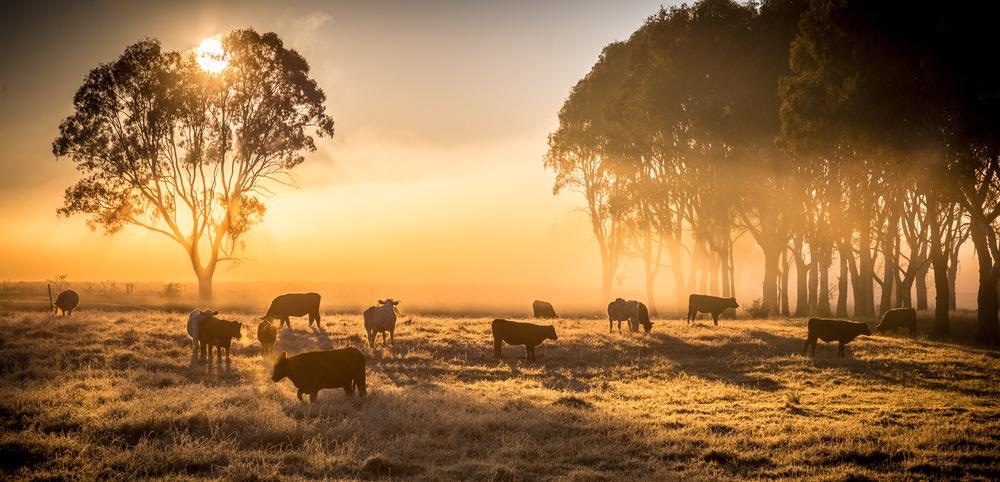Recent statistics have shown that the seafood industry is responsible for roughly the same level of annual carbon emissions as the aviation industry. In addition, the meat and dairy industry combined accounts for 14.5% of total global man-made emissions. Recent years have seen a significant uplift in interest in plant-based diets as a solution to our heavy reliance on these polluting industries.

Image Credit: Paul Looyen/Shutterstock.com
NovoNutrients has established a platform that converts CO2 emissions into alternative protein ingredients for both human food products and animal feed. The innovation tackles the food industry’s emission problem from two angles, it reduces the level of CO2 emissions in the atmosphere (which the food industry is partially responsible for), and it reduces our reliance on the meat and fish industry by offering ‘green’ protein alternatives.
Meat and Fish Production is Attributed to Significant Greenhouse Gas Emissions
The global food industry contributes significant volumes of greenhouse gases into the atmosphere every year. Climate change is one of the world’s most pressing issues and the urgency to resolve it continues to increase as rising temperatures, drought and wildfires become more prevalent across the globe, signifying the real impact of global warming.
Animals raised to produce meat for human consumption, such as cows and sheep, generate significant amounts of methane, which is up to 34 times more potent than CO2. The meat industry also contributes to climate change via the widespread deforestation that occurs because of the increasing need for farmland.
As the population continues to grow exponentially, as does the need for food. This puts pressure on our already stretched land resources leading to deforestation to clear space for pasture. The consumption of meat in large countries, such as China, has become increasingly popular, and to capitalize on its growing popularity, ranchers have devastated entire ecosystems. These ecosystems, which once captured millions of tons of CO2, are now becoming less widespread, resulting in a reduction in the Earth’s natural ability to pull CO2 from the atmosphere.
While the use of fossil fuels for energy is considered the most important human factor to change in terms of tackling climate change, experts also emphasize that activities relating to our use of land, including agriculture and forestry, produce around 25% of greenhouse gases related to human activities. If the world is to limit global warming to just 1.5 °C above pre-industrial levels, a goal outlined in the 2015 international Paris Climate Agreement, we must make significant changes to our use of land, including our farming practices, otherwise, the goal will be missed and we will suffer the impact of irreversible climate change.
Changing the Way We Eat to Tackle Climate Change
According to the International Panel on Climate Change, the world has until around 2030 to fight the battle against climate change chaos. These next few years will be crucial to the future of our planet.
Experts advise that making sustainable, lasting changes to our food system is one of the most significant ways we can address climate change. Successful and lasting changes to our diets and the way we produce food have the potential to alter the trajectory of climate change.
NovoNutrients has established a platform that advances a circular economy for food that can reduce the CO2 emissions associated with the food industry as well as reduce our reliance on meat and fish products.
The new system utilizes the carbon-rich waste gases that are produced by the food industry and cycle them through a process that results in clean, protein-rich food. The system addresses the vast amounts of CO2 being produced by the food industry as well as fighting hunger by producing low-cost, nutritious food products.
The technology established by NovoNutrients converts CO2 emissions into food sources for humans and livestock. Its initial focus will be to change and improve seafood industry emissions by providing a sustainable protein supply to grow seafood that is not associated with a heavy carbon footprint.
Next on the agenda will be to target the human food market, offering meat and fish alternative protein ingredients that are created within a circular food economy.
NovoNutrients has begun the process of licensing its technology to scale up its new system. It plans to establish a method whereby protein companies can create products such as plant-based “meats” for human consumption, multi-ingredient feeds for animals, or meat from cultured animal cells.
In the near future, we can expect innovations, such as that from NovoNutrients, to play a significant role in the fight to stop climate change. Alongside tackling our use of non-renewable energy, addressing our use of land and food systems will be vital to reducing emissions associated with human activity as well as removing emissions already lingering in the atmosphere.
References and Further Reading
How it works. [Online] NovoNutrients. Available at: https://www.novonutrients.com
Schiermeier, Q., 2019. Eat less meat: UN climate-change report calls for change to human diet. Nature, 572(7769), pp.291-292. https://www.nature.com/articles/d41586-019-02409-7
Pike, Lili. (2021) The surprise catch of seafood trawling: Massive greenhouse gas emissions. [Online] Vox. Available at: https://www.vox.com/22335364/climate-change-ocean-fishing-trawling-shrimp-carbon-footprint
Too little protein, too much carbon. [Online] NovoNutrients. Available at: https://www.novonutrients.com/
Disclaimer: The views expressed here are those of the author expressed in their private capacity and do not necessarily represent the views of AZoM.com Limited T/A AZoNetwork the owner and operator of this website. This disclaimer forms part of the Terms and conditions of use of this website.